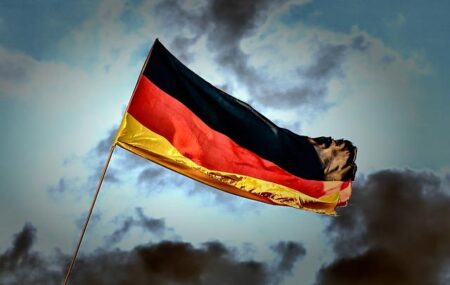In his latest article for The Guardian, David Broder explores Italy’s dramatic emergence as a leading force in the rising ‘remigration’ movement across Europe-a bold and contentious push to reverse immigration trends
Browsing: European politics
Germany’s conservatives are locked in a fierce battle to step out of Angela Merkel’s long shadow. Her centrist legacy still shapes the party’s identity, making it a tough challenge to forge a bold and fresh direction for the future
Despite facing significant internal challenges, Friedrich Merz has ignited a wave of strong support within Germany’s CDU party, building unstoppable momentum as the upcoming elections draw near, The Japan Times reports
In France, the far right has found a powerful new martyr, sparking a wave of fierce nationalist fervor. This development highlights the growing political rift and the strategic use of victimhood to galvanize support among far-right groups
Spain’s migration strategy, once hailed as a balanced and effective model, is now facing sharp criticism for its severe impacts and overstated successes. Experts warn that this approach not only inflicts harm on migrants but also overlooks the deeper, systemic issues driving the crisis
Spain’s Prime Minister Pedro Sánchez passionately urges Europe to prioritize investing in shared values and social unity over nuclear weapons, calling for diplomacy to lead the way amid rising tensions with Putin
Hungarian Prime Minister Viktor Orbán has launched a striking accusation against the EU and Germany, alleging they are backing a rival party to undermine his government. He warns that this meddling threatens Hungary’s sovereignty and puts his ruling party’s hold on power at risk as the critical elections draw near
Spain’s Prime Minister Pedro Sánchez has made curbing the influence of tech billionaires a top priority, framing it as a personal crusade to combat economic inequality and confront corporate dominance, reports politico.eu
Spain’s Prime Minister Pedro Sanchez has unveiled bold measures designed to ignite Europe’s unity and resilience like never before. Daily Kos urges every European nation to seize this moment, embracing these initiatives to build a stronger, more connected, and sustainable future for all
Italy is stepping up to calm worries about ICE immigration policies as the Winter Olympics approach, assuring the public that comparisons to past oppression are exaggerated and emphasizing a fair, balanced approach to enforcement
The UK breaks ranks with France and Italy over proposed talks with Putin, exposing deepening divisions within the EU on how to handle Russia. While London urges caution, Paris and Rome advocate for dialogue as tensions continue to rise
Spain’s Socialist Party faces mounting pressure as economic challenges and a rising opposition threaten its decades-long hold on power. With critical elections approaching, the party’s future influence teeters on a knife’s edge like never before
Germany and France are caught in a fierce showdown over the U.S. arms purchase, unfolding amid a colossal €90B EU loan to Ukraine. This intense clash is igniting tensions within the bloc as allies wrestle with defense spending priorities and how best to back Ukraine in its relentless fight
Marine Le Pen has set her sights on the European Parliament, blaming it for the political obstacles standing in her way. This bold move could significantly alter her path in both European and French politics, with the power to reshape the future of upcoming elections
Giorgia Meloni has thrust Italy into the spotlight of European politics. Now, as prime minister, she is driven to solidify her leadership, confront urgent domestic issues head-on, and reshape the nation’s political destiny
UK and France stand poised to deploy troops to Ukraine if a peace deal is reached, Labour leader Keir Starmer announced after talks in Paris. This decisive step underscores powerful Western support amid escalating tensions in the region
France’s President Macron and Germany’s Chancellor Merz applauded the removal of Venezuela’s Nicolás Maduro, yet urged caution moving forward. They emphasized the need for a seamless transition to avoid plunging the country into deeper turmoil, The Wall Street Journal reports
Over the past 40 years, Spain and Portugal have transformed from isolated economies into vibrant, dynamic powerhouses within the EU-driving growth, modernizing infrastructure, strengthening democratic institutions, and reshaping their influence across Europe
Italian Prime Minister Giorgia Meloni has issued a powerful and unsettling warning about 2026, sparking widespread confusion and concern throughout the country. As the details remain shrouded in mystery, citizens are anxiously seeking clarity to grasp the full meaning of her message. (tyla.com)
Spain’s parliamentary monarchy stands as a powerful pillar of political stability and national unity, masterfully weaving together rich traditions with modern governance. Experts highlight its crucial role in bolstering democratic resilience, especially in moments of challenge




















